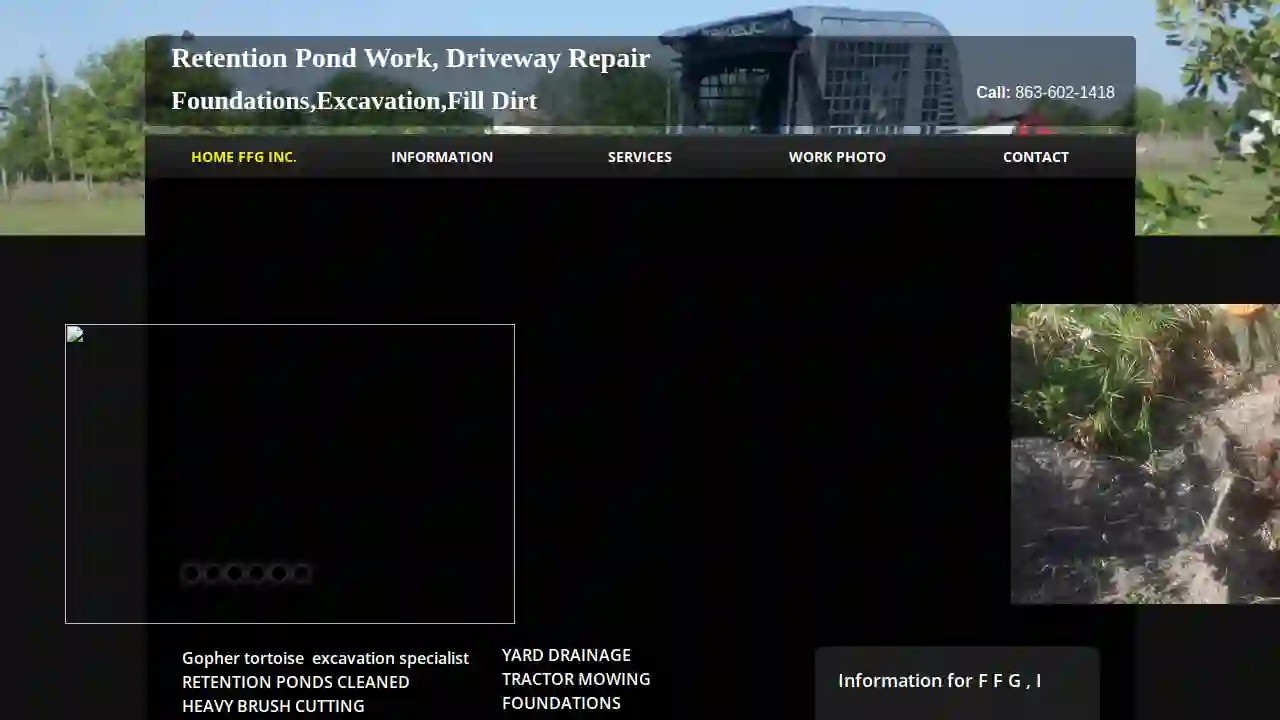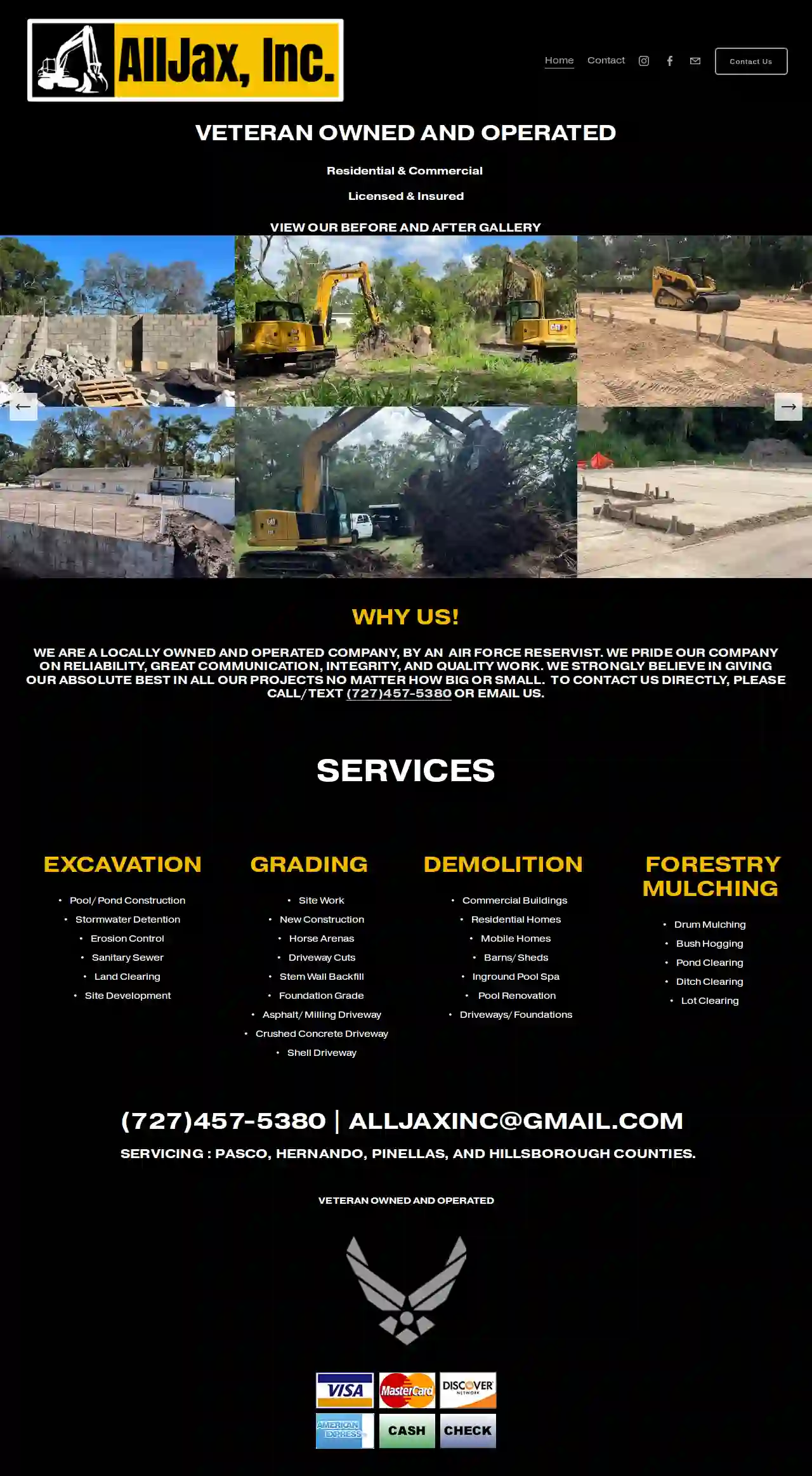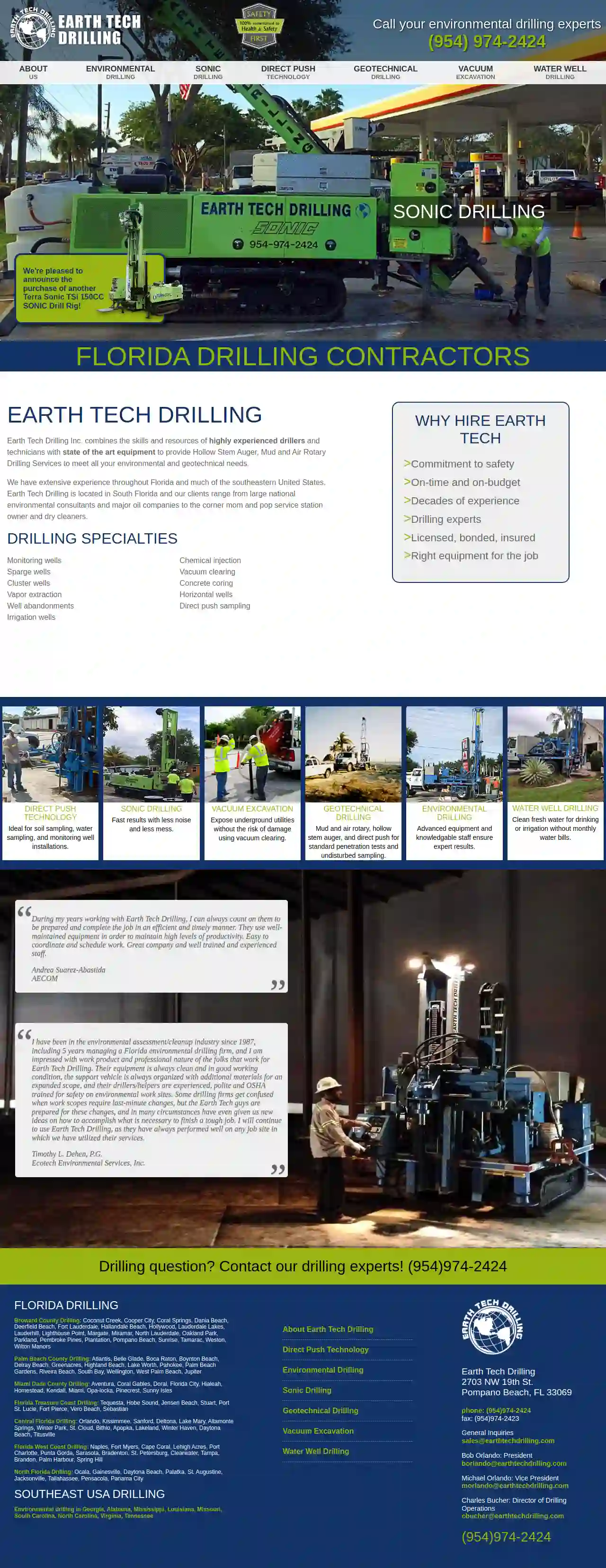Demolition Contractors Orland
Find Demolition Services in Orland
Get 3 FREE Demolition Contractors Near Me quotes for your project today! Compare profiles, reviews, accreditations, portfolio, etc... and choose the best deal.

Summit Building Group
51 reviewsSacramento, USSummit Building Group: Your Vision, Our Expertise At Summit Building Group, we are passionate about transforming your vision into reality. We are a full-service construction company specializing in a wide range of projects, from residential remodeling and additions to commercial building construction and tenant improvements. Our commitment to quality craftsmanship, meticulous attention to detail, and collaborative approach ensures a seamless and rewarding construction experience. We understand that building or renovating your space is a significant investment, and we are dedicated to providing you with the highest level of service and expertise. Our team of experienced professionals, including architects, designers, project managers, and skilled craftsmen, work together to deliver exceptional results that exceed your expectations. Whether you are dreaming of a stunning kitchen remodel, a spacious home addition, or a modern commercial building, Summit Building Group is your trusted partner. We are committed to building lasting relationships with our clients, providing transparent communication, and delivering projects on time and within budget. Contact us today to schedule a free consultation and let us help you bring your vision to life.
- Services
- Why Us?
- Gallery
Get Quote
Florida Finish Graders, Inc.
52 reviewsDavis, USFlorida Finish Graders, Inc. Florida Finish Graders, Inc. is located in Central Florida, with Service provided coast to coast. We are your source for central Florida land clearing, grading, excavation, foundations, and bobcat work, tractor work. We here at Florida Finish Graders, Inc. do the best work the first time, and at the most affordable price! Our Mission Helping property manager's take care of their grounds! We provide a variety of services for you. We can put together a plan so that your work site is in compliance with the FDEP from the start, avoiding costly infractions, as Raymond is a Licensed, State Certified Florida storm water erosion and sedimentation Control Inspector. Our Experience Working with the state of Florida, Operating the backhoe according to direction provided by the Project’s Florida Fish and Wildlife Conservation Commission (FWC) Gopher Tortoise Authorized Agent to excavate gopher tortoise. We tear out concrete driveways for complete replacement. Florida driveways can be made with recycled material, such as crushed concrete and asphalt-black top. Tree stump removal, tree stump grinder, large or small, we do it all. F F G Inc., has done many retention ponds or detention pond, new and rebuild to swfwmd standards for recertification, they have certified our work for double the standard time because of the superb work on our retention pond, swale work, grading, sod etc.. Florida Finish Graders, Inc. has sand and fill dirt for your yard, or complete tear out of your grass yard, (sod) and then re-grade your yard, then apply grass. FFG Inc,. can build your home foundation from the ground up or fill in stem wall foundation, building mono slab foundations. We provide sand, fill dirt, recycled material in central Florida. We can level your dirt.
- Services
- Why Us?
- Gallery
Get Quote
US Trenchless Inc.
4.971 reviews5716 Folsom Blvd., #290, Sacramento, 95819, USUS Trenchless: Your Trusted Partner for Trenchless Plumbing Solutions US Trenchless is a leading provider of trenchless plumbing services in Sacramento, CA. We specialize in a wide range of services, including sewer line repair, replacement, and inspection, as well as water line repair and replacement. Our team of experienced and certified technicians is committed to providing our clients with the highest quality service and workmanship. Why Choose US Trenchless? We understand that plumbing issues can be stressful and disruptive. That's why we strive to make the process as easy and hassle-free as possible for our clients. We offer: Free estimates 24/7 emergency service Competitive pricing A 100% satisfaction guarantee Our Services We offer a wide range of trenchless plumbing services to meet the needs of our residential and commercial clients. Our services include: Sewer line repair and replacement Water line repair and replacement Pipe bursting Horizontal directional drilling Sewer line inspection Hydro jetting Water heater installation and repair Water softener installation Water filtration system installation Our Team Our team of experienced and certified technicians is dedicated to providing our clients with the highest quality service and workmanship. We are committed to using the latest technology and techniques to ensure that our work is done right the first time. Contact Us Today If you are experiencing a plumbing issue, don't hesitate to contact US Trenchless. We are available 24/7 to provide you with the help you need. Call us today for a free estimate.
- Services
- Why Us?
- Our Team
- Testimonials
- Gallery
Get Quote
Souza Construction & Electric
52 reviews586 So. Farmersville Blvd., Farmersville, 93223, USSouza Construction Inc. is a growing construction business, striving ever forward to become a premier general contractor. From our beginning as a “one-man show”, until our present state as a “multi-faceted” team, one thing has remained constant, a commitment to customer service. It is this commitment that has helped Souza Construction Inc. nearly double its sales every year for the last four years. We firmly believe that it will be this continuing commitment that will assist us in continuing this phenomenal growth pattern. Essential to this excellent service are our capabilities as a builder and a business. THE SOUZA COMMITMENT Souza Construction Inc. has committed itself to recruiting and training leaders in both the construction and professional world. Assembling a team of this caliber is not a quick or simple process, but requires diligent research, highly refined discernment, and continuous assessment. However, it is just this level of commitment and attention to detail that sets us apart. Souza Construction Inc. has made this our primary goal: understanding our customers and their needs, utilizing excellence in the field and in administration, and combining this with an unwavering commitment to customer satisfaction; this is Souza Construction Inc.
- Services
- Why Us?
- Testimonials
- Gallery
Get Quote
JPS General Construction
53 reviews123 Main Street, Anytown, 12345, USAbout JPS General Construction JPS General Construction is a family-owned and operated business with over 20 years of experience in the construction industry. We are committed to providing our clients with high-quality workmanship, exceptional customer service, and competitive pricing. We specialize in a wide range of construction services, including: Residential construction Commercial construction Remodeling Additions Roofing Siding Windows and doors Decks and patios Concrete work And more! We are fully licensed, insured, and bonded, and we are committed to providing our clients with peace of mind. We work closely with our clients to ensure that their projects are completed on time and within budget. We are also dedicated to providing our clients with a positive and stress-free construction experience. If you are looking for a reliable and experienced construction company, look no further than JPS General Construction. We are committed to providing our clients with the highest quality construction services available.
- Services
- Why Us?
Get Quote
AllJax Inc Excavation, Forestry Mulching & Pond Clearing
4.935 reviewsDavis, USAllJaxInc is a locally owned and operated company, run by an Air Force reservist. We take pride in our reliability, excellent communication, integrity, and high-quality work. We are committed to delivering our best on every project, big or small. We are dedicated to providing exceptional service to our clients in Pasco, Hernando, Pinellas, and Hillsborough Counties. Our team is experienced in a wide range of services, including excavation, pool and pond construction, stormwater detention, erosion control, sanitary sewer, land clearing, site development, forestry, demolition, and grading. We are fully licensed and insured, and we are proud to be a Veteran Owned and Operated business. To contact us directly, please call/text (727)457-5380 or Email Us.
- Services
- Why Us?
- Gallery
Get Quote
Schreiber Excavating
53 reviews1767 Kenyon Road, Ontario, 14519, USSchreiber Excavating has a long history of happy clients across New York State. You can expect only the best in construction, utility installation, and trucking services from Dan and his team. Working at an expert level in construction requires highly trained workers and precision equipment. We use only the most advanced technologies to ensure safety, efficiency, and the best price possible. At Schreiber Excavating, our top priority is client satisfaction. You can expect a job well done—every time. Schreiber Excavating has a proven track record of delivering only the finest quality site work and utility services from initial conception to final product. Our highly trained team places safety first while maintaining a diligent focus throughout the entire process. You can trust Schreiber Excavating to make your construction a reality.
- Services
- Why Us?
- Testimonials
- Gallery
Get Quote
Demolition 4 You
52 reviewsWhittier, 90601, USProfessional Demolition Company in Whittier, CA Looking for an experienced and competent demolition contractor? You have come to the right place. We are Demolition 4 You, a professional company dedicated to offering well-formulated and high-quality services at fair and accessible prices. We operate in and around Whittier, CA and if you are interested in our assistance, keep reading to learn more. Hello, my name is Gilberto De Niz, I am a collaborator in demolition4you. We are a small Southern California demolition company, located in the city of Whittier. We are made up of a multidisciplinary and responsible team, which has extensive experience in the field of demolition and general construction. We offer our services throughout the local area and surrounding areas (L.A, Orange, Ventura & San Bernadino Counties). At demolition4you we are committed to our client’s projects, as the continuous improvement process requires us to provide a quality service at an affordable cost. About Our Excellent Services We have the expertise and technical capacity to correctly and promptly carry out even the most labor-intensive and time-sensitive projects. We will secure the site to protect passers-by and nearby structures from harm and damage. We will diligently bring down the building and save you from the hassle and stress of the task.
- Services
- Why Us?
- Our Team
- Testimonials
- Gallery
Get Quote
Earth Tech Drilling
4.610 reviews2703 NW 19th St., Pompano Beach, 33069, USEarth Tech Drilling Earth Tech Drilling Inc. combines the skills and resources of highly experienced drillers and technicians with state of the art equipment to provide Hollow Stem Auger, Mud and Air Rotary Drilling Services to meet all your environmental and geotechnical needs. Experience We have extensive experience throughout Florida and much of the southeastern United States. Earth Tech Drilling is located in South Florida and our clients range from large national environmental consultants and major oil companies to the corner mom and pop service station owner and dry cleaners. Why Hire Earth Tech Commitment to safety On-time and on-budget Decades of experience Drilling experts Licensed, bonded, insured Right equipment for the job
- Services
- Why Us?
- Our Team
- Testimonials
- Gallery
Get Quote
Cloud 9 Services, A Wind River Environmental Company
4.776 reviews1201 West Jackson St, Orlando, 32805, USUnderground Utilities Experts SERVICING COMMERCIAL, INDUSTRIAL, AND MUNICIPALITY INDUSTRIES GET A QUOTE Cloud 9 Services LLC is the underground plumbing and utility company that commercial, industrial, and municipal HOAs and property managers all over Florida consistently turn to. As a licensed and certified company that specializes in mechanical, plumbing, and underground utility (Drain Cleaning) and excavation, we stand out against our competitors. One reason why we have become the leading utility company in Florida is because we never close. Our customers can get in touch with us during an emergency at any time of the day or night. However, being able to get in contact with us at any time is just one of the benefits of working with Cloud 9 Services LLC. No other business in the Florida area performs mechanical, plumbing, and underground utility work with as much precision and skill as we do. Sometimes, finding the root of an underground plumbing issue can be difficult because these issues arise in an area that cannot be seen easily. At Cloud 9 Services LLC, we are able to find the root of any problem and solve any type of issue with ease and efficiency. Not only are we able to solve any sort of underground plumbing issue with drain cleaning, but the services we offer our customers are comprehensive and varied. No longer will have you have to jump from one company to other when you work with Cloud 9 Services LLC because we do it all. We perform pipe repair, hydro-excavation, drain cleaning, sanitary sewer line repair & cleaning, Jet Vac cleaning, lift station maintenance & repair, video pipe inspection, and much more. Whatever underground utility, plumbing, or construction job in the Florida area, you bring to us, we guarantee that we can do it right! WHAT OUR CUSTOMERS SAY Belinda G.You did everything you said you would do and the guys on-site backed up your promises. And they weren't stopping until the job was done. I can't recommend you and your team more! We are an extremely satisfied customer. A.W.Cloud 9 Services has been a pleasure to work with over the years. I can always count on them to get the job done, no matter the time of day!. Thank you for always doing a great job! Bob S.Cloud 9 services did an outstanding job. I could not be more pleased. Their work was excellent and the price was very reasonable. Please feel free to use me as a reference if helpful. Without reservation, I can confidently recommend Cloud 9. Cloud 9 Services Proudly Serves All of Florida! Cloud 9 Services, LLC has an established management team that has over 20 years of combined experiences in all our services offered. Making them your go-to guys for any and all questions you may have about our services, giving you the confidence to choose us to perform any job you need. Our team of licensed and trained technicians are ready to handle anything your job throws at them and delivery quality results in a timely manner.
- Services
- Why Us?
- Testimonials
- Gallery
Get Quote
Over 22,076+ Excavation Pros onboarded
Our excavation companies operate in Orland & surrounding areas!
ExcavationHQ has curated and vetted the Best Excavation Businesses near Orland. Find a reliable business today.
Frequently Asked Questions About Demolition Contractors
- Size and Complexity of the Structure: Larger and more complex structures, such as multi-story buildings, require more time, labor, and specialized equipment, increasing costs.
- Type of Demolition: Different demolition methods, such as implosion, wrecking ball, or high-reach demolition, have varying costs.
- Material Disposal: Disposal fees for demolition debris can contribute significantly to the overall cost, depending on the type and quantity of materials.
- Location and Accessibility: Demolition in densely populated areas or with limited access may require more planning and specialized equipment, affecting costs.
- Hazardous Materials: The presence of asbestos, lead paint, or other hazardous materials requires specialized removal and disposal procedures, adding to the expenses.
- Safety: Experienced contractors have the knowledge, skills, and safety training to execute demolitions safely, minimizing risks to workers and surrounding areas.
- Efficiency: Contractors have the specialized equipment and expertise to complete demolitions efficiently, saving time and reducing project costs.
- Compliance: Reputable contractors are familiar with local regulations and permitting requirements, ensuring compliance and avoiding legal issues.
- Waste Management: Contractors have waste management plans to handle debris responsibly, including recycling and proper disposal.
- Liability Protection: Insured contractors protect you from financial responsibility for accidents or damages during the demolition process.
- Site Security: Secure the demolition site with fencing and warning signs to prevent unauthorized access.
- Personal Protective Equipment (PPE): Workers should wear appropriate PPE, including hard hats, safety glasses, gloves, and steel-toe boots.
- Hazardous Material Removal: Properly identify and remove asbestos, lead paint, or other hazardous materials before demolition begins.
- Utility Disconnections: Disconnect all utilities, such as electricity, gas, and water, before demolition.
- Controlled Demolition Techniques: Employ controlled demolition methods to minimize risks and ensure the structure comes down safely.
- Dust Control: Implement dust suppression measures, such as water spraying or misting, to reduce airborne particles and protect air quality.
- Emergency Planning: Have an emergency plan in place, including communication protocols and evacuation procedures, in case of unforeseen events.
How do I find demolition contractors near me?
How much does demolition cost in the USA?
What are the benefits of hiring a professional demolition contractor?
What are the safety precautions for demolition?
How do I find demolition contractors near me?
How much does demolition cost in the USA?
- Size and Complexity of the Structure: Larger and more complex structures, such as multi-story buildings, require more time, labor, and specialized equipment, increasing costs.
- Type of Demolition: Different demolition methods, such as implosion, wrecking ball, or high-reach demolition, have varying costs.
- Material Disposal: Disposal fees for demolition debris can contribute significantly to the overall cost, depending on the type and quantity of materials.
- Location and Accessibility: Demolition in densely populated areas or with limited access may require more planning and specialized equipment, affecting costs.
- Hazardous Materials: The presence of asbestos, lead paint, or other hazardous materials requires specialized removal and disposal procedures, adding to the expenses.
What are the benefits of hiring a professional demolition contractor?
- Safety: Experienced contractors have the knowledge, skills, and safety training to execute demolitions safely, minimizing risks to workers and surrounding areas.
- Efficiency: Contractors have the specialized equipment and expertise to complete demolitions efficiently, saving time and reducing project costs.
- Compliance: Reputable contractors are familiar with local regulations and permitting requirements, ensuring compliance and avoiding legal issues.
- Waste Management: Contractors have waste management plans to handle debris responsibly, including recycling and proper disposal.
- Liability Protection: Insured contractors protect you from financial responsibility for accidents or damages during the demolition process.
What are the safety precautions for demolition?
- Site Security: Secure the demolition site with fencing and warning signs to prevent unauthorized access.
- Personal Protective Equipment (PPE): Workers should wear appropriate PPE, including hard hats, safety glasses, gloves, and steel-toe boots.
- Hazardous Material Removal: Properly identify and remove asbestos, lead paint, or other hazardous materials before demolition begins.
- Utility Disconnections: Disconnect all utilities, such as electricity, gas, and water, before demolition.
- Controlled Demolition Techniques: Employ controlled demolition methods to minimize risks and ensure the structure comes down safely.
- Dust Control: Implement dust suppression measures, such as water spraying or misting, to reduce airborne particles and protect air quality.
- Emergency Planning: Have an emergency plan in place, including communication protocols and evacuation procedures, in case of unforeseen events.